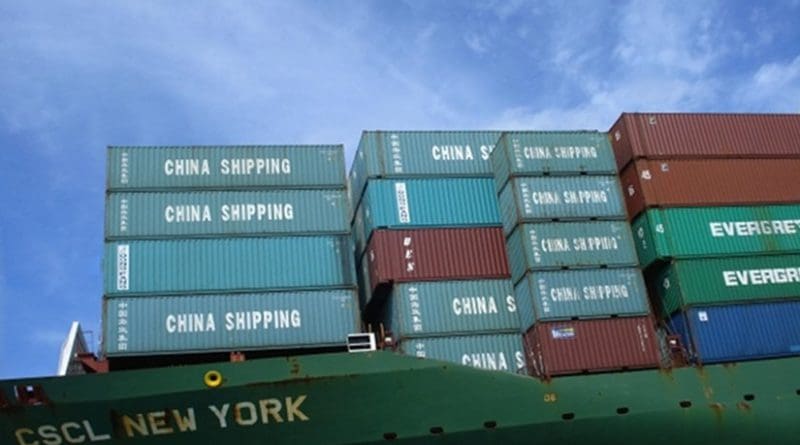Free Trade: A Key To A Rising Standard Of Living – OpEd
By MISES
By Jacob G. Hornberger*
Trade is a key to a rising standard of living in society, especially for those at the bottom of the economic ladder.
In every exchange, both sides benefit from their own individual subjective perspective. That’s because at the moment of the trade, they are both giving up something they value less for something they value more. Thus, trade enables people to improve their standard of living. The greater the ability of people to trade, the better off they are.
A simple example: Suppose John has 10 apples and George has 10 oranges. John would like some oranges and George would like some apples. They decide to enter into a trade. What would be a “fair” trade? 5 apples for 5 oranges? We can’t say that. It is impossible to say what would be “fair.” That’s because trades are always based on the subjective valuations of the traders. It depends on how much value that each of the traders places on what he is giving up and on what he is getting in exchange.
Suppose John and George reach a deal in which John gives George 9 apples and George gives John 1 orange. Would that be an “unfair” trade? Of course not because John is voluntarily giving up something he values less (9 apples) for something he values more (1 orange). And George is giving up something he values less (1 orange) for something he values more (9 apples). Both sides have increased their own standard of living through the mere act of exchange.
It stands to reason, therefore, that the wider the ambit of possible trades, the better off people are economically. They have more opportunities to improve their standard of living if there are 1,000 people with whom to trade as compared to, say, 10 people.
A corollary to this principle becomes obvious: To the extent that government interferes in any way with people’s freedom to trade, to that extent the government is suppressing the ability of people to improve their standard of living. The harsher the restrictions, the bigger the trade “wars,” or the more brutal the sanctions and embargoes, the worse off the government is making its own citizens in terms of economic well-being.
Thus, among the greatest things that could ever happen to the American people would be the U.S. government’s liberating them, fully and completely, to travel wherever they want and trade with whomever they want. No more tariffs, trade restrictions, trade wars, sanctions, and embargoes.
What if other countries refuse to follow suit? So be it. The fact that some foreign government is imposing restrictions on the freedom of its own citizenry to trade with others should not serve as an excuse for U.S. officials to “retaliate” by doing the same to American citizens. If a foreign regime restricts the ability of its citizens to trade with Americans, that is something American sellers and consumers will have to deal with it. It is no business of the U.S. government.
Finally, and much more important than the utilitarian arguments for free trade, we should always keep in mind that trade involves the exercise of fundamental, natural, God-given rights. Such rights include the right to private property, the right to do what one wants with his own money, economic liberty, freedom of travel, liberty of contract, and freedom of association.
God has created a consistent universe, one in which freedom, including free trade, is the moral system and also works to improve the lot of mankind.
[Originally published by the Future of Freedom Foundation.]
*About the author: Jacob G. Hornberger is founder and president of The Future of Freedom Foundation.
Source: This article was published by the MISES Institute

